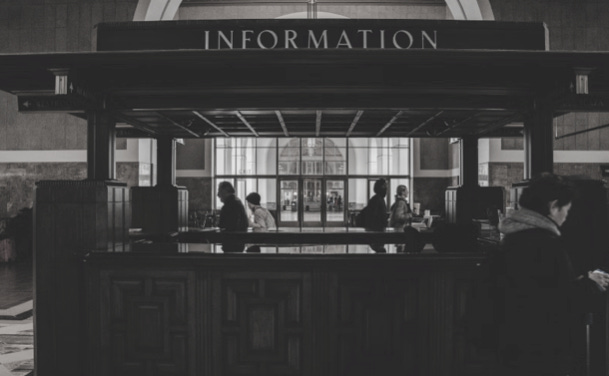Digital Hoarding & Information Anxiety
How digital hoarding leads to information anxiety and what does this mean culturally in the digital age?

Davis had spent his Saturday morning reviewing his external hard drives with so much of his documents, photos and videos he had stored on them over the past decade. His goal, he’d told himself, was to clean out the digital dust and desiderata. Now he sat staring at his screen and the collection of external drives. In that moment, Davis realized he was a digital hoarder. He felt anxious. He’d never really get through it all he surmised.
Probably the biggest use of storage on our devices and hard drives or Cloud systems is photos and videos. Then there’s all those years of bookmarks, maybe a read-later app or two, toss in all those Pinterest saves and troves of saved stuff across other social media platforms and we’ve got more information for ourselves than we’ll ever get through.
We hear terms like information overload and digital detox a lot these days. Ironically, there are numerous apps to help us with a detox, or promises of better managing our information and dealing with the anxieties of our digital lives.
There’s a paradox too with digital hoarding and information anxiety. The more we collect and curate the more anxious we may feel about all our curating. The paradox is that we end up finding and saving more information to reduce our anxiety!
We tend to think that managing all this information and getting to what we call information overload is something new in the digital age. But we’ve had this problem ever since we created more books and related materials than one could read in a lifetime.
Information is deeply rooted in the evolution of our species, specifically the communicating of it. As we gained information, we shared it, allowing us to form the complex social structures we have evolved today.
In some cultures, information is a form of cultural capital and the more one has, the higher their social status, such as owning a vast library. The assumption of a person entering another’s home where they may have a library or lots of bookshelves is that the person is well read and intelligent.
In other cultures, there is a greater regard for minimalism, which translates to the digital world as well. , with people in these cultures feeling no great need to hang on to podcasts, photos, documents.
Our anxieties around information are fuelled by our engagement in the digital world. From FOMO (fear of missing out) via social media platforms, to our ability to record our lives in vast detail like never before. From digital journals to our phones and the ability to take many thousands of pictures.
While we may store vast amounts of information, one challenge many face is where and how they store information and what happens over time. Such as when we uncover an old hard drive and then spend hours trying to find the connecting cable, realizing its gone and that drive is so old, there’s no longer anyway to retrieve what’s on it. We may have no idea if anything was important or what we lost. This too, feeds into our information anxieties.
And it’s not like we are creating less information. We create vast amounts every day around the world, building ever more data centres to store it all. Then of course, there’s Generative AI with Large Language Models (LLMs) like ChatGPT and Claude and the rise of Answer Engines to replace or supplement search engines.
We may not realise it, but we are forming new rituals, customs and traditions around how we create, share and manage information. Generative AI may play an increasingly important role in taking off some of the cognitive load from so much information, perhaps too, reducing information anxiety.
Yet we already know that there are challenges with GAI tools, such as having hallucinations and making things up. We don’t know why or how, but it happens and it turns out, the more we interact with some LLMs, the worse they get. No doubt they’ll improve, or will they? Maybe AI will have limits like us. Perhaps AI agents will get information anxiety as well?
We don’t see digital hoarding as a societal problem, as it has less impact, it would seem, on our lives such as real hoarding that fills up homes and tears families apart. We know that real-world hoarding is usually born out of psychological issues. Digital hoarding is likely driven by how we see and perceive information and the social value it can provide, especially with regard to building up our knowledge.
How we will evolve our management and curation of knowledge will be interesting to watch, along with associated anxieties.



Omg I feel called out with this. I can relate to digital hoarding as I’m guilty of it. Thanks for putting this out there! I bet most can relate.